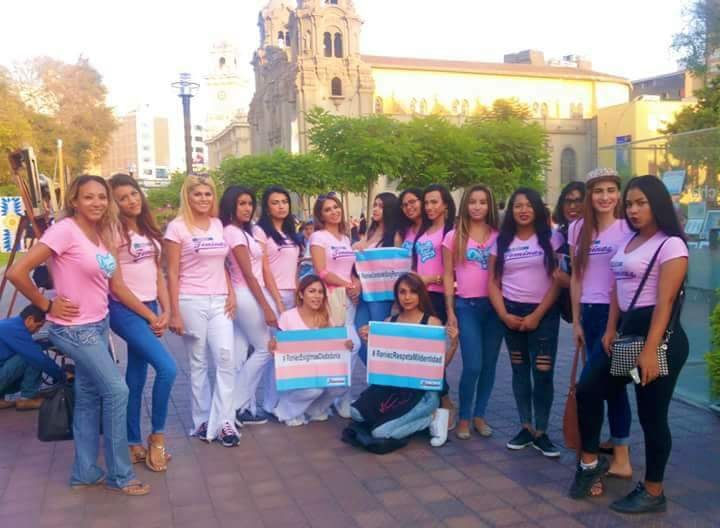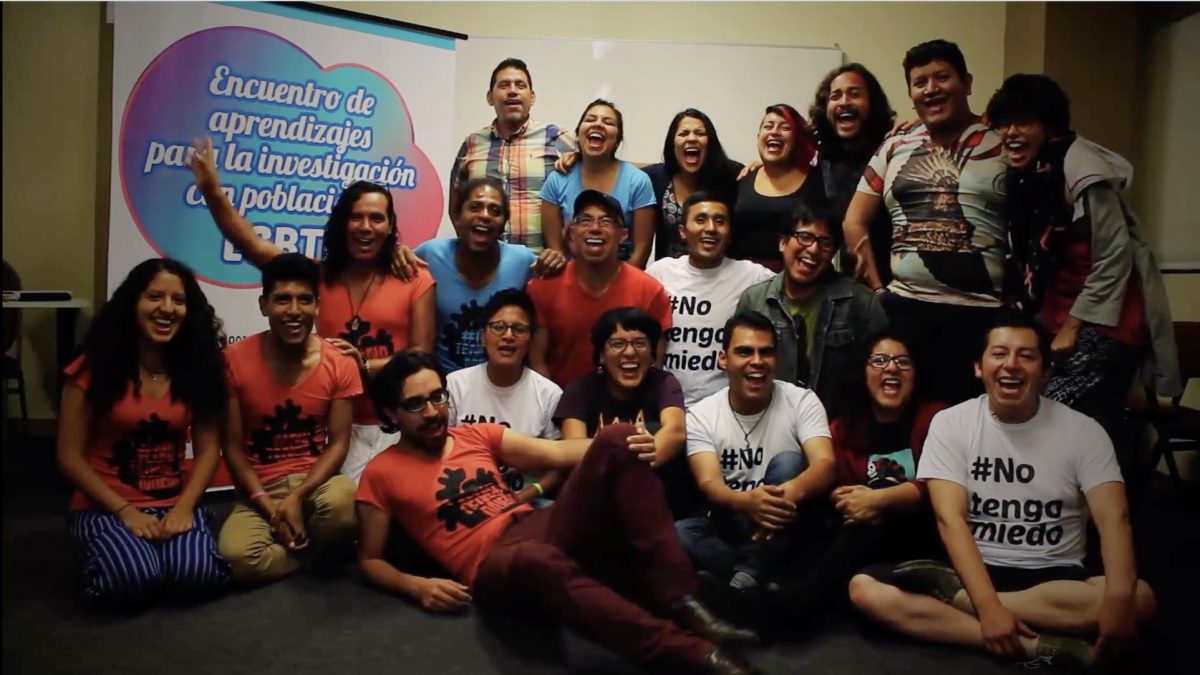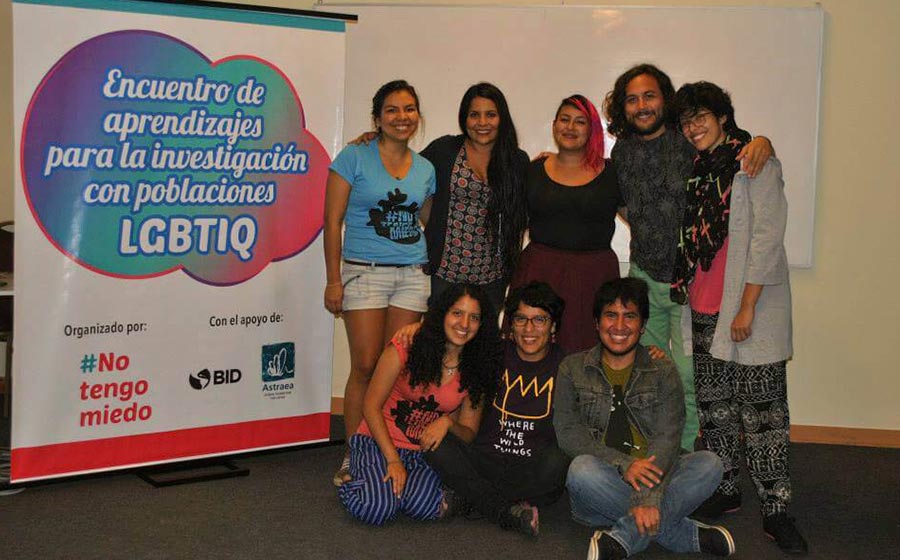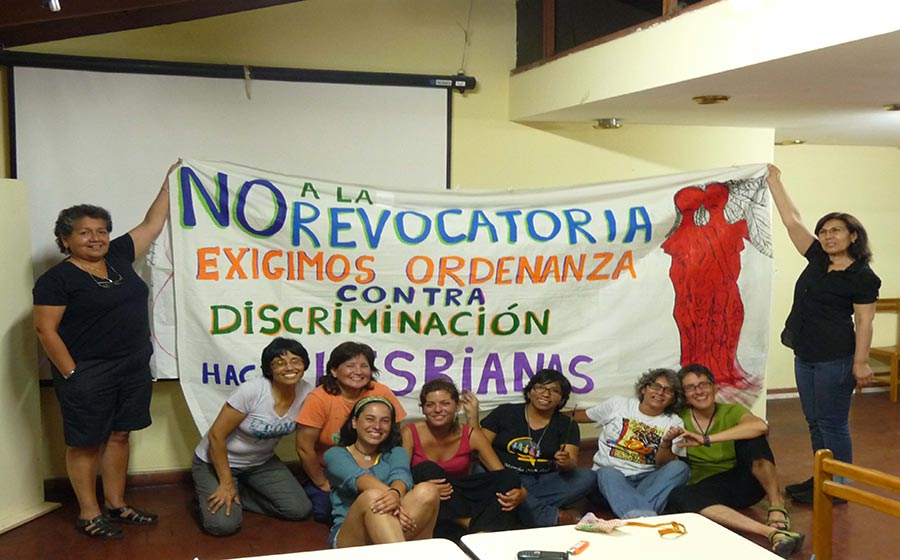An interview with Colectivo No Tengo Miedo’s former General Coordinator, Malú Machuca Rose.
Colectivo No Tengo Miedo is an LGBTIQ collective in Lima with the mission of promoting social justice, liberation and equal access to resources for the LGBTQI community. It is composed of a multidisciplinary team composed of artists, youth, activists and academic researchers.
In the video above, NTM’s former General Coordinator, Malú Machuca Rose, shares more about the organization’s work, including its emphasis on the arts.
Learn more about Colectivo No Tengo Miedo.
***
Video transcript:
The reason we chose “No tengo miedo”, which means “I am not afraid”, is because it is so easy to understand that sentiment, because even a lot of cis-gender, heterosexual people are like “oh! You know, I’m not afraid either”, and you’re like “Oh, well cool, well sometimes our community is.” And it starts a conversation that comes from a place of empathy, because we can all relate to having been scared at some point of being ourselves.
Whenever I’m alone, I do feel very scared, especially if I am somewhere that I don’t really know. I think that’s why trying to put resources out there so people know who to call, what to do, where they can go to say, “Hey, this happened to me”. When we launched our website, we actually did a series of videos, and we set up a couple of things of how it was to be LGBTIQ in Lima, and then we asked people, “What is it like for you?” And that got people talking, got people to know the project. We also had a research group that was taking all these stories. We put them together in a book. We wrote some recommendations for public policy. It’s called “State Of Violence”. And we presented it to the people that were running for mayor of Lima, and it became a way to push the candidates and say, “Hey, LGBTIQ voters are a big part of the people that you know, you should be talking to as well.”
A lot of the research work that we’ve done, and a lot of the political advocacy work that we have done, would not be able to reach the places that it did, and that it has, and continues to do without the arts. We started doing documentary theatre with LGBTIQ people and we invite The Ministry of Women, The Ministry of Health, of Work, of Education, and people running for congress to the theatre. So you’re sitting down, the lights are off, the doors are closed, where are you gonna go? And I think about after the hour and a half that the play lasted. When they left the room, they were, [lets out a sigh], like, you know, because you’re not going through the cognitive, the rational, where they know how to say no. They’re going through the emotional space.
One of the things that really worked was that the plays were touching on things that were so common to everyone. They were like, “When we went to school”, you know, or “Our first love,” or “The first time we had sex”— all these experiences everyone had, but were not the same for LGBTQI people. And I think going through these more emotional routes of change, got them to say, “You know what, I’ve been really touched, can we talk?” And you’re like, “Yes, of course!” And it allowed us to speak to each other from a place of empathy.
And if we’re talking about, like these are our lives, like, we deserve to live, we deserve to go to school, we deserve these things that are very basic. People are like “Yes, yes you do”. And they understand. And it really was, like a change of how we do things, because we had these people sitting down listening to us tell our stories, in our language, through the arts, and we had been heard first, before they were even given the ability to talk, they had to see us, hear us. And that was just so powerful.
A lot of the times we use the same strategies in activism: we protest, we present. We do, like the formal, the rational. But when we change it up, even just a little bit, it can bring a whole new energy to what we’re doing.
Getting funded by Astraea, we have felt very free to spend the money that we have and the resources that we have according to our priorities, and counting on the fact that we are in solidarity with each other. Having queer people, women from the same spaces that you’re from, that can understand why you need to do this work, why these are the priorities. I don’t think I’ve worked with an organization before that took my opinion and my experience as such an important part of how they organized their work and their resources, and that’s very important to me. You create the work that you want to see in the world, and I think that’s what Astraea did and that’s what we’re doing now, and that makes me very happy.





